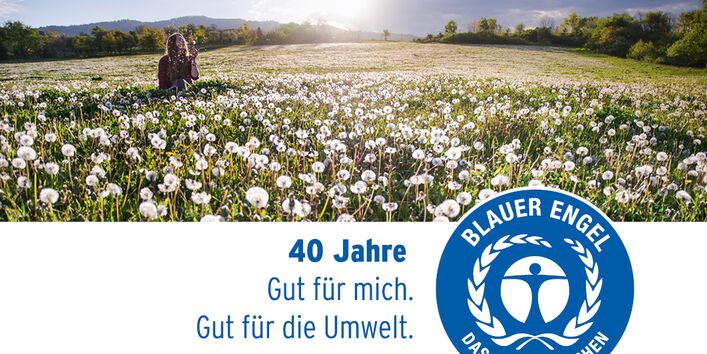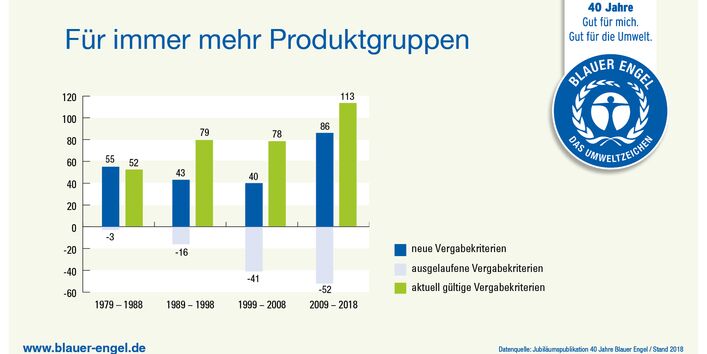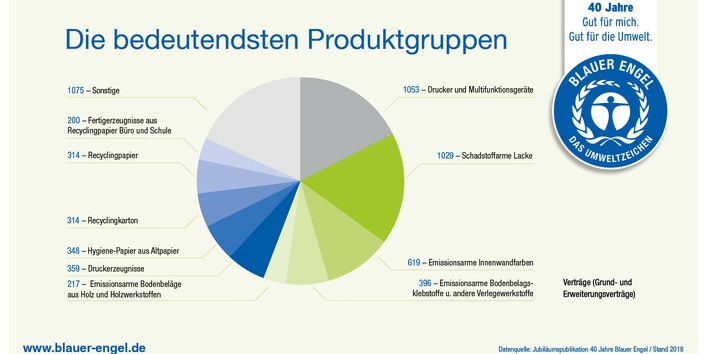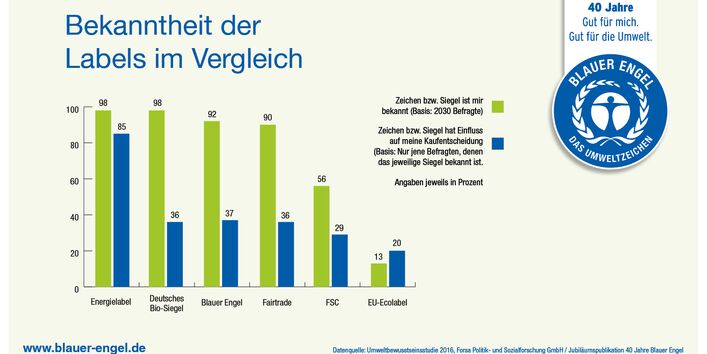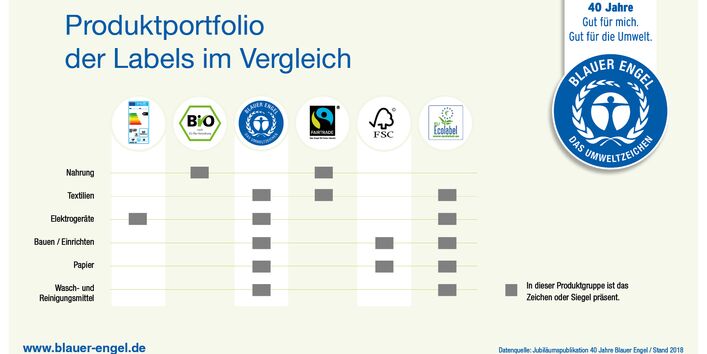40th anniversary of the Blue Angel
The Blue Angel – the German government’s ecolabel – is celebrating its 40th anniversary. Since 1978 it has been setting high environmental standards for products and services, independent of economic interests. The original idea was to create a reliable quality seal which provides clear consumer guidance in making environmentally friendly purchases. Today it has become one of most widely recognized labels and is associated with more than 12,000 products which cover everything from vacuum cleaners to smartphones. A Blue Angel seal for climate-friendly logistics services and returnable beverage cups will be available soon. Two textile products will also soon be certified with the Blue Angel.
Federal Environment Minister Svenja Schulze said: "More and more people are paying attention to how durable and environmentally friendly the products are that they buy. In the jungle of labels and seals the Blue Angel is a reliable guide for sustainable consumption. I am calling on merchants to add more products with the Blue Angel to their product range and to increase demand from producers."
Maria Krautzberger, President of the German Environment Agency said: “The Blue Angel is a voluntary labelling system. Companies benefit from the clear signal it sends, which essentially says that what’s inside the product is not only good for the environment but for people, too. At the same time the Blue Angel is a trailblazer, which sets standards in advance of legislation and can establish criteria for environmental and healthy products more quickly and flexibly."
The ecolabel establishes voluntary standards before environmental problems are regulated by law. It guarantees that the products and services which bear the Blue Angel label have been proven to cause less pollution than comparable conventional products and services – but have the same usability and quality.
Smartphones with the Blue Angel, for example, must feature a replaceable storage battery and have low radiation emissions. Cleaning agents and detergents may not contain microplastics. Textile products must be friendly to the environment and be produced under fair conditions.
In this last respect, the label is responding to an increasingly connected, globalized world and to societal and economic change. At its core the Blue Angel is an ecolabel, but has in the meantime added social aspects to its award criteria, for example with regard to smartphones, textiles, toys and shoes. Textile products with the Blue Angel must shun forced labour and observe the minimum working age in clothing factories or ban the use of pesticides in cotton growing.
The German Environment Agency develops its strict award criteria based on scientific research. Special requirements were developed for each of the current 113 product groups and are reviewed and developed further on a continuous basis. Vacuum cleaners, for example, must meet more than 25 requirements and that number goes up to nearly 100 for printers before the ecolabel is granted.
The Blue Angel began in 1978 as the first ecolabel worldwide, covering six product groups including CFC-free spray cans, low-noise lawn mowers and returnable bottles. Today, there are more than 12,000 products offered by 1,600 companies. The most prominent product groups currently are printers, low-emission interior wall paints, low-pollutant varnishes, floor coverings, furniture, and recycled paper.
Besides social standards and its close associations with international ecolabels the Blue Angel will in future be focussing on digitalization when granting certification to large computer centres, laptops, smartphones, routers and their underlying infrastructure. An ecolabel for servers and resource-efficient software is also planned.
What are the requirements of the Blue Angel award criteria?
- Economic use of resources in production (e.g. water, energy, recycled materials)
- Sustainable production of raw materials
- Avoidance of pollutants in the product
- Reduced emissions of pollutants to soil, water and indoor space
- Mitigation of noise and electromagnetic radiation
- Durability, reparability and recyclability
- Good usability
- Compliance with international occupational safety and health standards
- Take-back systems and services for community use (e.g. car sharing)
- Efficient utilisation, e.g. with products that save energy or water
